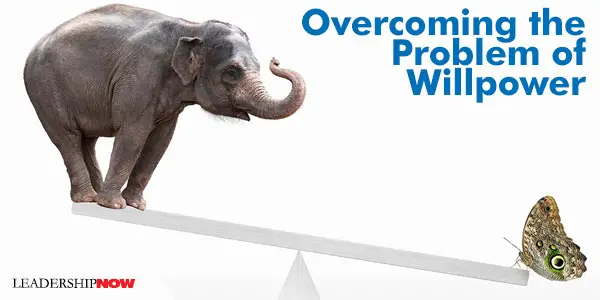 |
 |
01.28.14

Overcoming the Problem of Willpower
OUR WILLPOWER is simply outmatched by our habits and attitudes. The solution says Caroline Arnold in Small Move, Big Change, is translate your goal into microresolutions—small but meaningful behavioral changes. Instead of commanding yourself to be an organized person or lose weight through willpower—to be what you are not—the idea is to define explicit actions to practice, one by one, until you begin to do what an organized or fit person does automatically. “Microresolutions focus on doing, not being. Being different follows, rather than precedes, deliberate action.” The more change we impose on ourselves, the more resistance we must overcome. And yet we nearly always shoot for an instant transformation, resolving to be slim, to be neat, to be on time. Such wannabe resolutions require changing scores of behaviors and put us broadly at war with autopilot. Arnold’s microresolution system is organized into seven rules: Rule 1: A microresolution is easy. The easier it is, the less you’ll be tempted to talk yourself out of it. Rather than resolving to walk to work every day, an easy microresolution would be to walk to work one day a week. Rule 2: A microresolution is an explicit and measurable action. Your resolution must focus on a specific change of behavior, not a result than can be achieved in multiple ways. Rather than say “eliminate 100 calories a day,” a microresolution to cut a habitual afternoon snack of a candy bar in half is an explicit and measureable action. Rule 3: A microresolution pays off up front. To “lose twenty pounds by summer” does not have an immediate benefit. “Stop eating after 8:00 pm” does. Rule 4: A microresolution is personal. Finding the most effective resolution requires careful self-examination. Rule 5: A microresolution resonates. It’s positive rather than negative. Instead of “I resolve not to be defensive when receiving feedback,” you might reframe it as, “I will listen, acknowledge, and give thoughtful consideration to feedback.” Rule 6: A microresolution fires on cue. Establishing a strong link between an action and its cue is essential for making a new behavior automatic, and a careful framing overall will help you nail your resolution and make practicing it more enjoyable. Rule 7: Make microresolutions just two at a time. Limiting your resolutions ensures that you have the attention and endurance to stick with a behavioral shift until it becomes autopilot. “The art of self-improvement is not about perfection but about priorities,” write Arnold. In part two, Arnold applies these rules to specific areas of self-improvement such as sleep, fitness, diet, clutter, and relationships. Small Move, Big Change is engaging to read and easy to relate to. It will help you overcome the willpower problem and make progress with any changes you’re faced with. 
Posted by Michael McKinney at 10:30 PM
|
BUILD YOUR KNOWLEDGE
 

How to Do Your Start-Up Right STRAIGHT TALK FOR START-UPS 
Grow Your Leadership Skills NEW AND UPCOMING LEADERSHIP BOOKS 
Leadership Minute BITE-SIZE CONCEPTS YOU CAN CHEW ON 
Classic Leadership Books BOOKS TO READ BEFORE YOU LEAD |